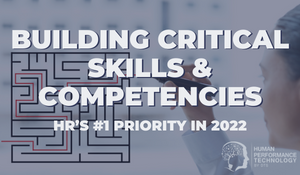Agile Methodology
-1 Minute Read
The Agile Methodology is a set of principles and practices that prioritise flexibility, collaboration, and customer-centricity in the development of software and other complex projects. Originating from the "Agile Manifesto," which was penned in 2001 by a group of software developers, Agile approaches break down tasks into small, manageable parts called iterations or sprints. The methodology is iterative and incremental, allowing for frequent reassessment and adaptation.
In an Agile framework, cross-functional teams collaborate closely and frequently reassess project goals and tasks. Customer feedback is integrated at multiple stages to ensure that the end product closely aligns with customer needs and expectations. Agile methodologies like Scrum, Kanban, and Extreme Programming (XP) offer various ways to implement these principles.
The Agile approach is often contrasted with the Waterfall model, which is more linear and sequential. Agile's iterative nature allows for more rapid adjustments and tends to be more adaptable to changes in project scope, stakeholder requirements, or market conditions.
Origin of the Agile Methodology
The Agile Methodology, as it is commonly understood today, originated from the "Agile Manifesto," which was created in February 2001 by 17 software developers who gathered at a ski resort in Snowbird, Utah, in the United States. These developers were looking for alternative methods to the traditional Waterfall approach to software development, which they found to be limiting and rigid.
The signatories of the Agile Manifesto are: Kent Beck, Mike Beedle, Arie van Bennekum, Alistair Cockburn, Ward Cunningham, Martin Fowler, James Grenning, Jim Highsmith, Andrew Hunt, Ron Jeffries, Jon Kern, Brian Marick, Robert C. Martin, Steve Mellor, Ken Schwaber, Jeff Sutherland and Dave Thomas.
These individuals had backgrounds in various software development frameworks and methodologies such as Scrum, Extreme Programming (XP), and Dynamic Systems Development Method (DSDM), among others. Their collective thoughts and experiences were distilled into the Agile Manifesto, which outlined key values and principles that promote an iterative, flexible, and customer-centric approach to software development.
It's worth noting that many of the principles in Agile methodologies were not entirely new; they were inspired by or evolved from earlier concepts and methodologies in software engineering and project management. However, the Agile Manifesto was a seminal moment that brought these principles together under a unified banner.
We have also explored the Agile Methodology previously in the following posts:
Topics:
Project Management
Trevor O'Sullivan
General Manager. Since the early 2000s, Trevor has worked with thousands of Talent Management professionals to develop and apply assessment-based talent management solutions for selecting, developing and managing people. Trevor is an active member of the TTI Success Insights (TTISI) Global Advisory Council, contributes to TTISI product development and is a regular presenter at TTISI-R3. He is honoured to have received multiple Blue Diamond Awards and, more recently, the Bill Brooks Impact Award recognising his contributions to the TTISI global network.



We Would Like to Hear From You (0 Comments)